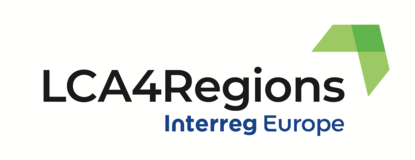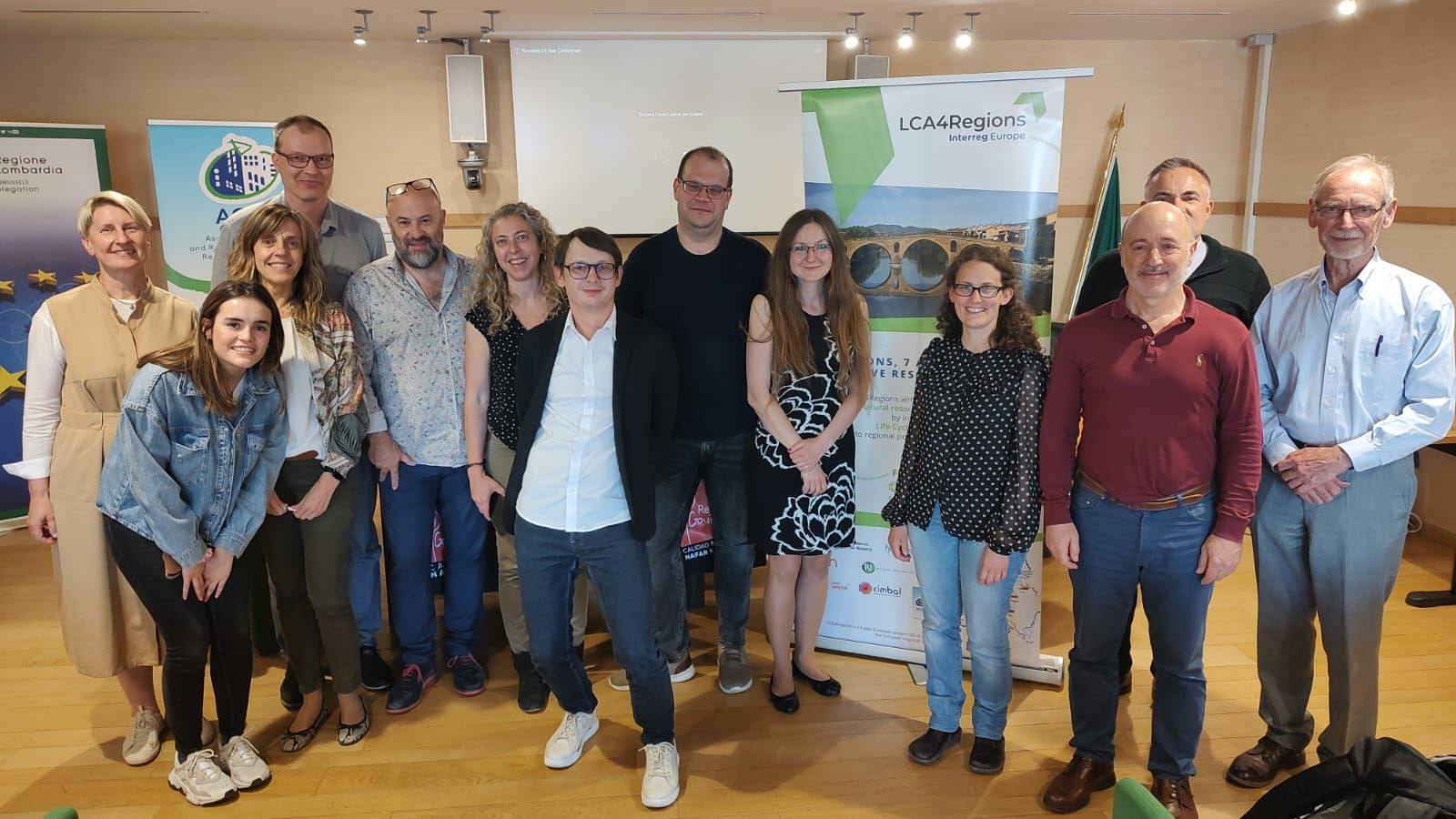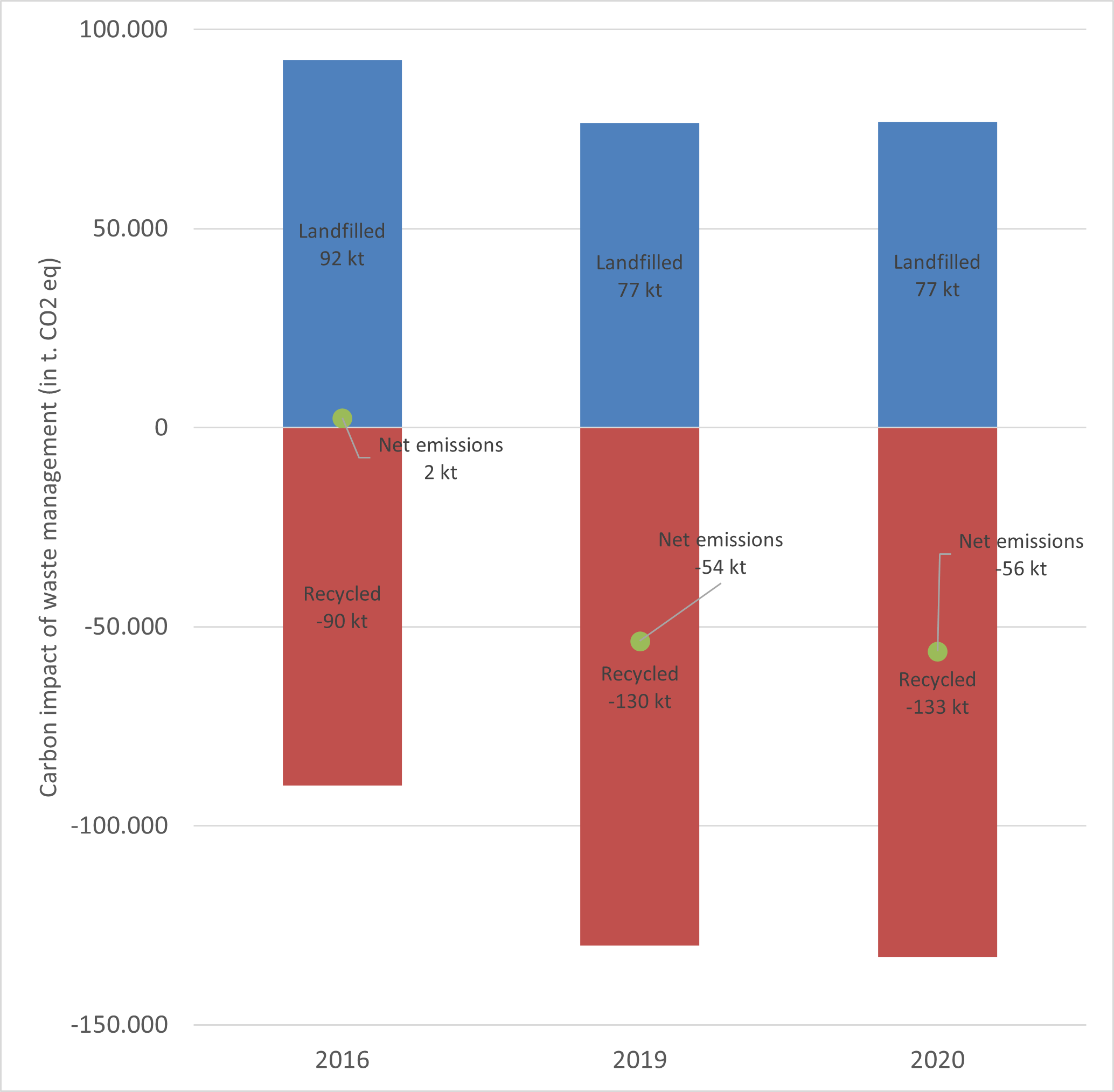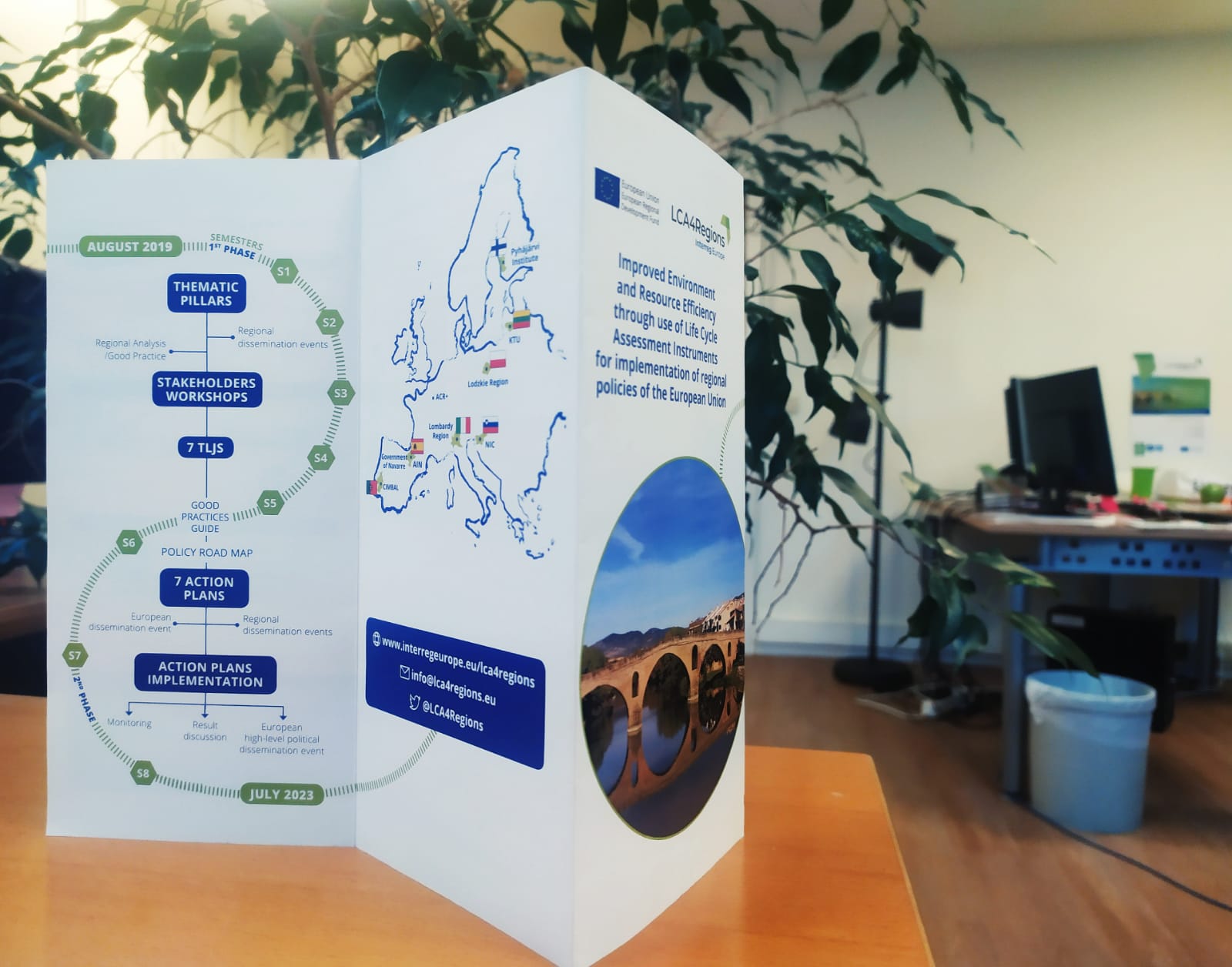Gathered in Milan, the LCA4Regions partners explored how LCA and LC thinking approaches can support the monitoring and evaluation of policies. The different perspectives discussed point in the same direction: seeing the benefits it brings, further efforts should be taken to develop circular economy indicators based on LCA.
LCA4regions partners put an end to nearly two years of online work and finally met in person for their sixth Transnational Learning Journeys (TLJ), from 22 to 24 November. Organised in Milan by the Region of Lombardy. The event was part of Lombardy’s Second Sustainable Development Regional Forum.
After five TLJs and the identification of already over 47 Good Practices, partners had no doubt that LCA tools are well spread. Furthermore, an overview conducted ahead of the TLJ showed that there are excellent local cases of applying LCA tools to specific segment of local policies, mainly in green public procurement and waste management plans. One of the questions left unanswered was how to give a broader scope to life cycle thinking and life cycle analysis in the context of circular economy and sustainable development and how to integrate it to all the stages of policymaking, in particular monitoring and evaluation. Thus, the different presentations and discussions of this TLJ helped understanding if the integration of LCA in monitoring frameworks could facilitate and increase the efficiency of the whole process.
The answer is positive, the integration of LCA wider methodologies to monitor local circular economy and sustainable development strategies is a promising path. This is why, they recommend exploring further the benefits of using LCA to support the development of a system of indicators not only based on materials and waste production but also taking into consideration the multi-dimensional aspect of circular economy and able to detect crosscutting effect of policies and activities. Examples presented during the TLJ illustrated that potential applications vary from improving sustainable consumption to the promotion of an increased integration of different local policies (environmental, innovation strategies, circular economy,...).
To get to the above conclusion, the LCA4regions partners explored on the first day the link between LCA and LC thinking approaches and monitoring frameworks under different perspectives. Serenella Sala, representing the European Commission, provided an update on pilot initiatives at EU level, also focusing on product categories for which LCA framework are set at EU level. These tools are an effective support for local authorities to refer for design local policies. After the presentation by Rina of a study on life-cycle performance of geothermal power plants, the Italian Network for Life cycle assessment introduced its own activities and structure to show how network of experts can support the integration of LCA methods in policy monitoring. An exemplary story was brought by Sant’Anna University with “Made Green in Italy”. Product environmental footprints of different products, in the case presented agri-food products, have been calculated and used by Italian authorities as a scheme to promote a labeling system awarding green products made in Italy. It helps build mutual trust between consumers and producers and promote sustainable consumption. Lombardy Region is currently assessing how to integrate this initiative in its regional policies. The TLJ also included a panel discussion to compare actions design, enact and communicate monitoring frameworks to enhance the environmental and social impacts of the circular economy.
The last two days of the event were more dedicated to activities linked to the LCA4Regions project.
First, partners presented Good Practices from their territories of integrating LCA in the evaluation
of public policies. These will soon be available on the LCA4Regions website. Before setting for a visit
of the Milano Food Hub, one recognized solution to prevent food waste in Milan, the LCA4regions
partners discussed the preparation of their Action Plans. These Action Plans aim to improve
selected policy instruments on partners’ territories and will be implemented during the second
phase of the project. The last part of the meeting consisted in a peer review of the local policy using
a document prepared by the Lombardy Region as a reference. Partners and stakeholders then shared a sustainable dinner at the Refettorio Ambrosiano, supporting an initiative where people in need can find free meals every day, prepared with unsold food collected from large-scale retailers.
As the project is approaching to the conclusion of its first phase, a final TLJ on the Action Plans will be hosted by CIMBAL, the Baixo Alentejo Intermunicipal Community (PT), in February 2022.










